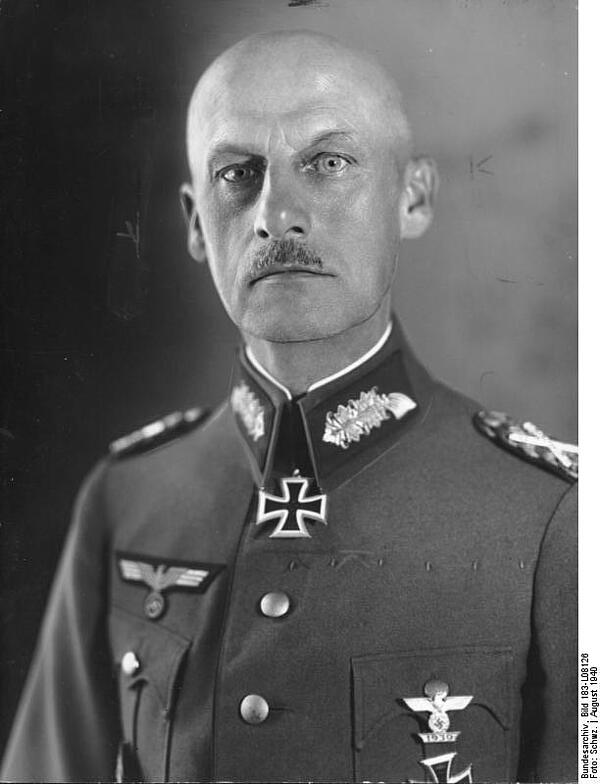Wilhelm von Leeb
Field Marshal Wilhelm von Leeb played important roles in Nazi Germany’s invasion of France and in ‘Operation Barbarossa’. However, his failure to take Leningrad incurred Adolf Hitler’s wrath and Leeb was placed on the army retirement list in early 1942.
Born in 1876, Wilhelm Ritter von Leeb later joined the 4th Field Artillery Regiment in and served as an artillery officer in World War One.
In 1929 he was promoted to the rank of major general. In 1934, he became commander of the 2nd Gruppenkommando (Army Group Headquarters). Shortly after this appointment, however, Leeb resigned his commission to protest against new rules and regulations imposed on the army by the Nazis.

Hitler knew of Leeb’s antipathy towards the Nazis. He later promoted Leeb to colonel general, but in 1938 retired him. However Leeb was soon taken out of retirement and played a part in the seizure of Sudetenland.
At the outbreak of World War Two in September 1939, Leeb was given command of Army Group C. Whilst Germany’s army was attacking Poland, Leeb was tasked with defending Nazi Germany from a possible French invasion.
During the invasion of France in May 1940, Leeb’s army group helped defeat the defenders who were based on the Maginot Line. Off the back of this invasion, Leeb was promoted to the rank of field marshal on 19 July 1940.
Leeb was made commander of Army Group North for ‘Operation Barbarossa’, the German invasion of the USSR. His armies initially stormed through the Soviet Union. They captured Soviet naval bases on the Baltic Sea and destroyed Red Army units in the Baltic region. Leeb’s army had surrounded Leningrad by late September, when he was ordered to stop the advance.
Leeb infuriated Hitler by not capturing Leningrad, despite the fact that he stopped his advance upon orders. This failure to capture the USSR’s second city was his downfall. Leeb was placed on the retired list on 18 January 1942.
Wilhelm von Leeb died on 29 April 1956, aged 79.
MLA Citation/Reference
"Wilhelm von Leeb". HistoryLearning.com. 2024. Web.
